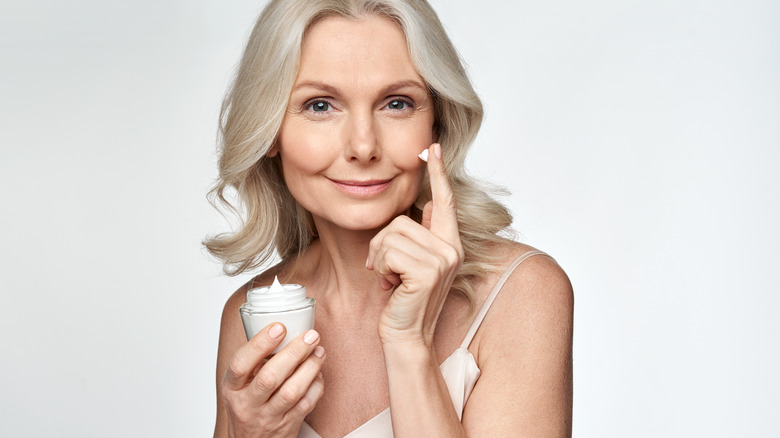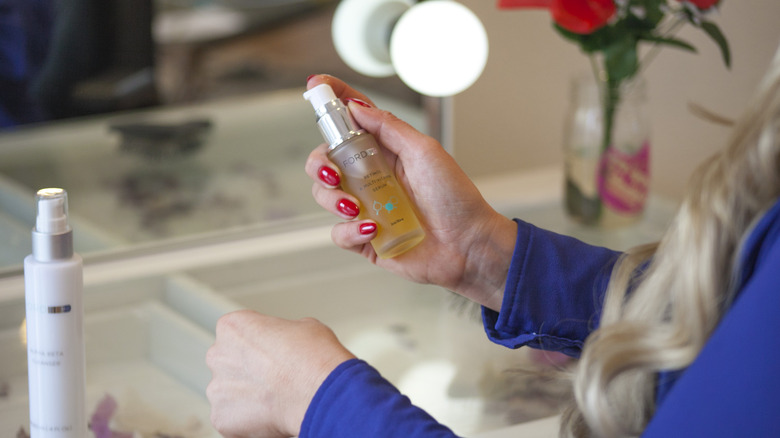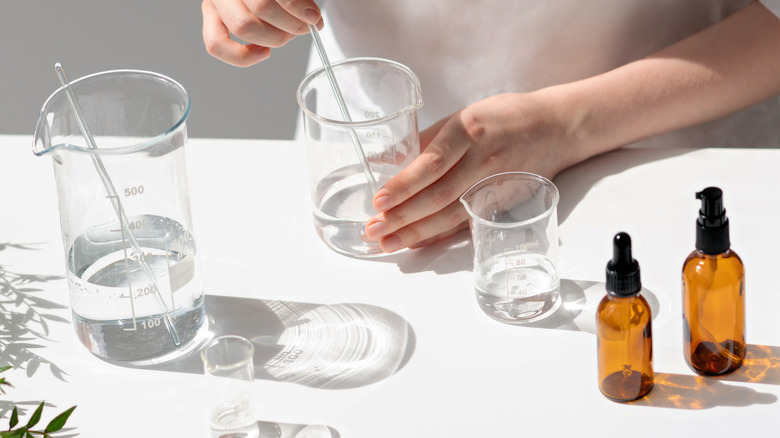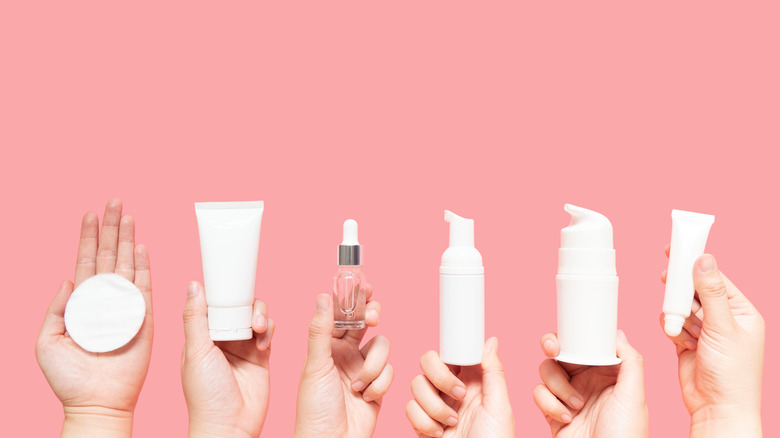Retinol Vs. Retinoid: Which Is Better For Anti-Aging?
We may receive a commission on purchases made from links.
Battling aging can be a top concern when it comes to buying skincare products. According to a survey conducted by InStyle, when women reach their 30s and 40s, forming an anti-aging skincare routine is a top priority. While women in their teens and 20s rarely have anything but controlling acne on their minds, experts recommend adding anti-aging products to your regimen as early as your mid-20s (via Newsweek). These experts believe the sooner you begin using these products, the less likely you are to develop fine lines and wrinkles.
Finding the best anti-aging skincare products can be tricky as there are so many options out there. According to Byrdie, using products that contain retinol and retinoids paired with a daily SPF is important. However, it isn't that simple.
When it comes to retinol and retinoids, it can be hard to understand how they work. Is retinol or retinoids better for anti-aging? And what exactly is the difference between the two? Keep reading to learn more.
What is retinol?
Retinol is one of the most popular skincare ingredients on the market. If you browse the aisles of Sephora, Ulta, or even the drugstore, you will see the word retinol on more boxes than you can count. According to Glamour, retinol is technically a type of retinoid. They both contain vitamin A, but they work at different levels.
Retinol slows down your skin's aging process (via Marie Claire). It works by speeding up your cell turnover rates, tricking your skin into thinking it is younger than it is. While it sounds like the process will happen overnight, you won't notice much of a difference until you have been consistently using the product for at least three months.
"Up until your early 30s, your cells turn over every 28 days, creating a fresh layer of untouched, pristine skin," dermatologist Mona Gohara, M.D., said to Marie Claire. "But after you hit your mid-30s, your cell regeneration slows down, turning over every 50, 60, or 70 days." This is when your skin begins to show wrinkles. Using a product that contains retinol can help speed up the turnover process and leave your skin looking youthful.
What are retinoids?
Though retinol is a type of retinoid, all retinoids vary in strength (per DermStore). Retinoids were originally used to treat acne and blackheads. They can still be used for those benefits, but they're now most known for their anti-aging abilities.
When it comes to the difference between retinol and retinoids, it can get confusing. Byrdie spoke with dermatologist Melissa Levin, M.D., who shared, "'Retinoid' is essentially a basic umbrella term for both over-the-counter retinol and prescription retinoids." Retinoids are antioxidants that work to battle wrinkles and promote collagen growth under the skin.
Sounds great, right? There is a catch. Retinoids can cause irritation to the skin, but Dr. Levin has some advice to help the process of adding a retinoid into your skincare routine go smoothly. "Retinoids and retinol can initially cause a process called retinization, which leads to redness, dryness, and flaking, especially when you first start," she said to Byrdie. "It's important to realize you should slowly ease into using a retinoid."
Which has better anti-aging properties?
While retinol falls under the blanket category of a retinoid, there are some differences between the two, according to Oprah Daily. If you have sensitive skin, you'll want to try out retinol before exploring another type of retinoid. It is a gentler option and will be less likely to cause irritation. Of course, ease into the process to avoid any complications.
If you're looking for the quickest fix, retinoids are the answer. They tend to work quicker than retinol, which usually takes about three months to show any difference in your skin's texture. However, getting a retinoid in your hands isn't as simple as going to your local beauty store. These tougher-acting retinoids more than likely will require a prescription from a dermatologist.
Whether you're using retinol or another retinoid, the end goal of both is to produce retinoic acid (via Reader's Digest). "The retinol has to go through multiple conversions before it can be turned into retinoic acid,” dermatologist Edidiong Kaminska, M.D., told Reader's Digest. Because retinoids do not take as long to create retinoic acid, they're more efficient. However, retinol is the easiest retinoid to buy for anyone who doesn't have access to a prescription from a doctor.



